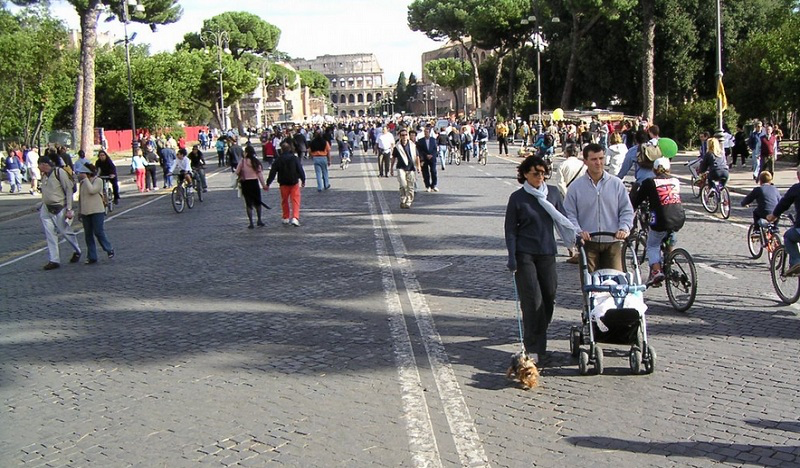
Rome’s “Ecological Sundays,” which restrict traffic to reduce pollution, may at a first glance appear to be an environmental initiative on the surface, but they serve a deeper agenda—to condition the public to the idea of staying home and resting on Sundays. While rest is not inherently problematic, the issue lies in how this concept is being enforced—not through a voluntary means, but through civil law. By mandating Sunday rest under the guise of environmental concern, these laws are laying the groundwork for broader restrictions on individual freedom in the name of public good.
On March 21, 2025, Il Messaggero, an Italian daily publication in Rome, shared the following about civil measures aimed at restricting cars on Sunday:
• “New traffic stop in Rome. Sunday, March 23 marks the fifth ecological Sunday, the last since the start of the calendar approved by the Capitolina Council for the autumn-winter 2024-2025 season. The measure restricts the circulation of all internal combustion engine vehicles in the ZTL ‘Green Belt’ area.” [1]
• “From 7:30 AM to 12:30 PM and from 4:30 PM to 8:30 PM, traffic will be stopped for some vehicles. Categories potentially exempt from the bans, including possible time changes as needed, will be communicated via a specific ordinance available on the City of Rome’s website, as well as the map of the affected areas.” [1]
• “The complete list of exemptions is in the mayor’s ordinance published on the City website. For this season, the Capitoline Council has decreed a total of 5 Sundays during which motor vehicles cannot circulate. The first four took place on November 10, December 1, January 26, and February 16.” [1]
This is a Sunday rest ordinance put in place by political leaders in Rome. The intent is clear: reduce consumption and travel and reclaim rest on certain Sundays. These seemingly small Sunday rest measures, like traffic bans and limited commercial activity imposed by local city officials, gradually help normalize the idea of Sunday as a special day for rest.
In cities like Rome, such restrictions are never scheduled for Saturdays, not because reducing carbon emissions is good no matter the day, but because Saturday doesn’t align with the broader agenda of promoting Sunday observance. The choice of Sunday is intentional because it reinforces the Catholic and Protestant idea that Sunday is the day we must respect, conditioning the public to accept and even prefer Sunday rest. This selective application of the law reveals what is really happening behind the scenes, and that is how Sunday rest could eventually become more than just a suggestion—it could, is, and will continue to be codified through civil law.
Sources
[1] https://www.ilmessaggero.it/AMP/en/rome_s_traffic_halt_for_ecological_sunday-8729457.html
Leave a Reply